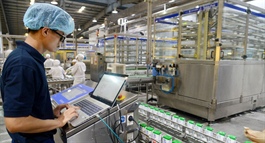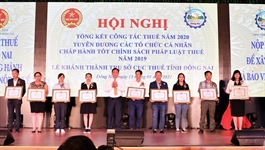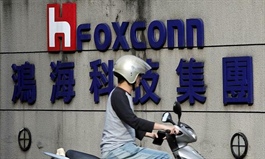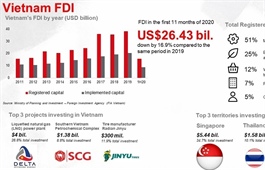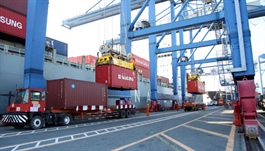Smart manufacturing for accelerated digitalisation
Smart manufacturing for accelerated digitalisation
Manufacturing accounts for around 16 per cent of global GDP, and is one of the foundations for the global economy. Denis Brunetti, president of Ericsson in Vietnam, Myanmar, Cambodia, and Laos, analyses the pivotal role smart manufacturing plays in Vietnam’s endeavour towards increasing its industry’s productivity and competitiveness.

Denis Brunetti, president of Ericsson in Vietnam, Myanmar, Cambodia, and Laos
|
In a recent report on connected manufacturing, Ericsson and Swedish tech group Hexagon AB examined five different smart manufacturing applications that may enable manufacturers to conduct their operations more efficiently – autonomous mobile robots, collaborative robots, digital twins, augmented reality, and asset condition monitoring. The report shows that all these cases can pay for themselves in 3-5 years, and when all five are deployed together, payback can occur even within two years.
While the rapid uptake for robotics and overall automation on industry shop floors has been projected for a long time, challenges confronting the sector are manifold. Customers nowadays are increasingly expecting faster delivery and more customised products, which require factories to support flexible production. Supply chain disruption, outdated machinery, data security concerns, and restricted production adaptability also remain some of the long-standing issues.
Connected factories can boost efficiency, safety, reliability, and ultimately profitability with private cellular networks. According to a 2019 survey by Deloitte, a significant majority of manufacturing executives believes smart manufacturing initiatives will drive competitiveness over the next five years.
Manufacturers are increasingly seeing the value of private networks to make their business more agile. Private networks today operate mostly on 4G LTE. Through such networks, enterprises can cut the wires for maximum autonomy on a secured network slice as these networks have the potential to connect and manage entire lifecycles of devices with zero-touch capabilities.
Manufacturing companies are also betting on 5G to deliver ultra-low latency, high bandwidth, and reliable communication. Networks based on 5G are expected to become widely available in 2021 and will play a critical role in bringing about smart manufacturing.
To stay competitive, factories and warehouses must leverage the Industrial Internet of Things (IIoT) and digitalisation to become much more efficient. While industries have automated many processes, secure wireless connectivity empowers factory automation, making industrial automation possible on a much larger scale. By creating a digital foundation, industrial automation will increase productivity and performance. For instance, Ericsson’s factory in Estonia has demonstrated that with AR troubleshooting, the average fault detection time reduction combined with better ergonomics and faster information sharing, can boost productivity by up to 50 per cent.
Industry 4.0 will help make smart machines even smarter, factories more efficient, processes less wasteful, production lines more flexible, and productivity higher. Built on the foundation of smart, secure, and wireless connectivity are many opportunities to extend machine life through predictive maintenance and supporting rapid material handling while monitoring every detail of the shop floor and leveraging collaborative robots simultaneously with mobile communication. This will help factories realise their goal of becoming fully automated.
Enterprises implementing Industry 4.0 need fast, reliable, secure wireless connectivity solutions, and Ericsson offers global connectivity and device management through the IoT Accelerator as well as on-premise connectivity solutions for industries.
Meanwhile, Ericsson and Audi have been collaborating to expand the horizons of tomorrow’s factories with 5G technologies. Following on from the first announced collaboration to pioneer 5G for automotive manufacturing in 2018 and from previous developments with both Audi and SICK, where we introduced safe operation of automated guided vehicles over a 5G network, we have now taken factory automation over a wireless network to the next level with 5G Ultra-Reliable Low-Latency Communication.
Cutting the cables is the real game changer in enabling Industry 4.0. With that, Ericsson and Audi successfully tested 5G URLLC capabilities with real-life industrial automation applications at an Ericsson lab last year.
Ericsson’s cellular technology is empowering manufacturers to create agility by operating with more flexibly, advance operations by allowing efficiency-boosting technologies like AR and autonomous mobile robots, and unlocking intelligence by transforming data into actionable insights that raise productivity.
Here in Vietnam, we are also planning to invest in various smart initiatives, partnering with other Swedish companies as well as our mobile operator customers. Our ambition is further sharpened by the expectation that over two-thirds of global manufacturers will relocate to Asia-Pacific by 2025, with Vietnam clearly attracting a high number of these manufacturing opportunities. At Ericsson, we will support Vietnam in becoming a regional and global smart manufacturing hub.
Ericsson wishes to applaud the Vietnamese government for its strategic leadership in promoting the digital transformation of industries and enterprises, highlighting the importance of technology advancements for Vietnam’s continued socioeconomic prosperity. We fully support the government’s directions to effectively harness opportunities from the Fourth Industrial Revolution with 5G serving as the enabling digital infrastructure to support the rapid and sustainable development of Vietnam.










